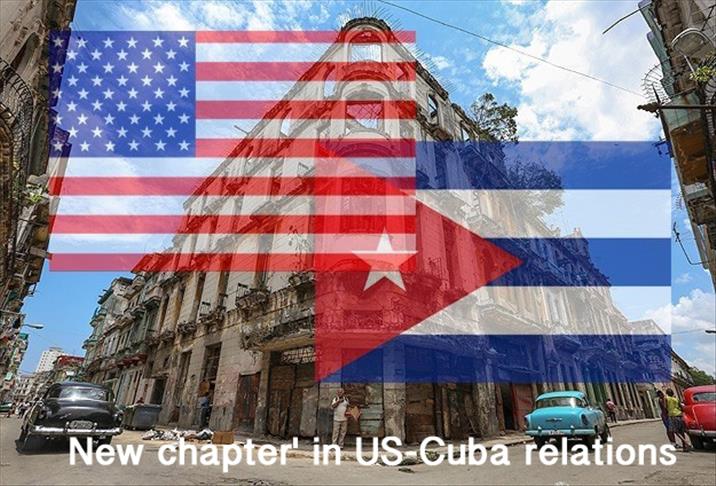'New chapter' in US-Cuba relations rekindles debate
Obama's historic foreign policy change towards Cuba creates much debate in U.S.

WASHINGTON
Discussions surrounding U.S.-Cuba relations started as soon as Alan Gross, who had been imprisoned in Cuba for five years, boarded a plane back to the U.S.
Soon after Gross’ arrival, President Barack Obama shocked the world by pledging to restore diplomatic relations with Cuba. He said that 50 years of sanctions had brought no progress with regards to human rights issues in Cuba or relations with the U.S.
“We will end an outdated approach that for decades has failed to advance our interests,” Obama said. “Neither the American nor the Cuban people are well-served by a rigid policy that is rooted in events that took place before most of us were born.”
However, Cuban-American Republican Senator Marco Rubio called the president “the worst negotiator.” He disagreed with the exchange of three Cuban prisoners -- who were imprisoned in the U.S. for spying on behalf of the Cuban government -- for Gross.
Republican Senator Lindsey Graham was scathing on his Twitter account.
“I will do all in my power to block the use of funds to open an embassy in Cuba. Normalizing relations with Cuba is a bad idea at a bad time,” he tweeted.
Republicans were not the only critical voices against Obama’s move. New Jersey's Democrat Senator Roberto
"I think it's wrong. I am deeply disappointed in the president," the outgoing Senate Foreign Relations Committee chairman and son of Cuban immigrants said.
Republicans will control the Senate starting in January, meaning they will have the power to block presidential nominations.
They do not, however, have a unified stance on U.S.-Cuba relations.
"In the end, I think opening up Cuba is probably a good idea," Rand Paul, Kentucky
Experts and academics are as divided over the question of U.S.-Cuba relations as the politicians are.
Marc Hanson,
“They did not listen to the president’s speech,” he told an Anadolu Agency correspondent. “Obama took a historic step to normalize relations with Cuba. That is going to unlock lots of potential to improve life in the Western Hemisphere.”
“The embargo itself stole human and political rights. Removing the embargo will create greater freedom,” he added.
Eduardo A. Gamarra, a professor at the Department of Politics and International Relations at Florida International University, was not surprised by the Republican reaction.
It was “very predictable” because they “obtained public office by playing anti-Cuba cards,” he told the AA.
Erik Camayd-Freixas, Professor of Hispanic Studies at Florida International University lashed out at critical Republicans as “they seek to continue a culture of hatred and resentment that the newer generations of Cubans and Cuban-Americans do not share.”
“For decades, many Cuban American politicians, public
“The embargo served to shelter, shield and preserve the Cuban regime from outside influences and
Sebastian A. Arcos, Associate Director at the Cuban Research Institute at the Florida International University argued that policy change would prove to be controversial.
“These changes to U.S. policy are very controversial in Miami -- where Cuban immigrants are mostly located -- and the U.S., because there are solid arguments on both sides of the policy debate, in favor and against the current policy,” he said.
“It is true that a slight majority of Cuban-Americans are in favor of changing the current policy, but it is also true that most Cuban-Americans who vote regularly in local and national elections tend to be more conservative and are not happy about the changes,” he continued.
“This could mean a backlash against Democrat candidates in the next national election in 2016. In the last election this year, a Democrat Cuban-American congressman lost his seat to a more conservative Cuban-American challenger,” he said.
With the arrival of Alan Gross on U.S. soil, five decades of diplomatic silence between the U.S. and Cuba are set to be shattered and relations restored. How this will affect the 2016 U.S. presidential election is uncertain, but that it will form a major part of the campaign is beyond doubt.
Anadolu Agency website contains only a portion of the news stories offered to subscribers in the AA News Broadcasting System (HAS), and in summarized form. Please contact us for subscription options.







